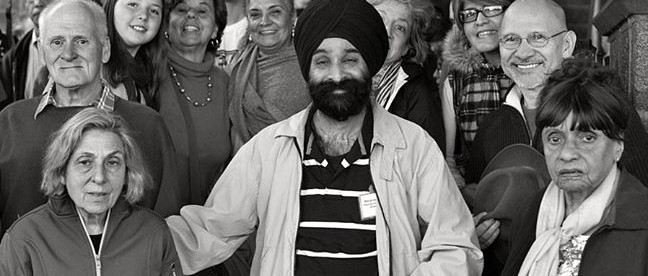Flushing Interfaith Council: Drawing on History, Inspiring the Future

Flushing Meeting of the Religious Society of Friends is an active member of the Flushing Interfaith Council, which was recently profiled by Harvard University’s Pluralism Project:
Over 350 years ago, the people of Flushing penned the Flushing Remonstrance, a defense, of an individual’s right to freely practice their faith. It was a challenge to the governor of New York at that time, Peter Stuyvesant, who had issued a ban against practicing any religion except the Dutch Reformed Church. Resisting this ban, John Bowne hosted Quaker prayer services in his home. Soon thereafter, arrested by Stuyvesant and exiled to Holland, Bowne relied on the principles of the Flushing Remonstrance to make a successful appeal of his arrest to the Dutch West India Company, who then ordered Stuyvesant to permit New York residents to practice their faiths freely.[1] Today, organizers of a local interfaith council in Flushing seek to honor the legacy of the Flushing Remonstrance by “build[ing] within Flushing a community that fulfills and surpasses the dream of toleration” enshrined in that document.[2] Since 2007, the Flushing Interfaith Council has grown from a committee convened solely to plan an annual Queens Unity Walk event to a robust council that now meets monthly to plan programming and serve as a support network for social justice and interfaith activists.
The Flushing Interfaith Council frequently partners with many other faith- and community-based organizations like the Center for Ethnic, Racial, and Religious Understanding (CERRU) at Queens College, the Flushing Jewish Community Council, the Muslim Progressive Traditionalist Alliance, Pax Christi Metro New York, Women for Afghan Women, and Amnesty International. The Council’s programming reflects these diverse partners. Recent partner events have included an Amnesty International event marking the twelfth anniversary of the opening of Guantanamo Bay, the Alternatives to Violence Project Workshop, a Weep for Gaza Interfaith Evening of Prayer, and a screening and discussion of the film Rethink Afghanistan. The Council also participates in and helps publicize the annual Flushing Ganesha Parade hosted by the Hindu Temple Society of North America.
Although the Flushing Interfaith Council plans different events throughout the year, including the Flushing Interfaith Annual Picnic, which brings members of various faith communities together at a local park, the Queens Unity Walk remains the largest. The Walk draws hundreds of people for a full day program and underscores the fact that many houses of worship in Flushing are located within just a minute’s walk of each other. During the Walk, participants learn about the history and traditions of the different places they visit and enjoy food sponsored by the Singh Sabha Gurdwara of New York. The event also gives people a chance to get to know and interact with each another. In addition the Unity Walk in Flushing, the Flushing Interfaith Council has helped to organize two Unity Walks in Richmond Hill, Queens.
The Flushing Interfaith Council is a member of the Greater Flushing Chamber of Commerce and day-to-day operations for the Council take place in office space at the Chamber of Commerce building. John Choe, a founding member of the Council and current executive director of the Greater Flushing Chamber of Commerce, made this arrangement possible. Programming and activities of the Flushing Interfaith Council take place in local religious and communal venues while planning meetings are held in members’ houses of worship or private residences.
The Flushing Interfaith Council’s work is informed by and intertwined with the history and diversity of Flushing, a place where, as Rabbi Weisser says, “[i]f you keep your eyes open, you get to experience the whole world.”[4] “[It] is not a coincidence that [Flushing] has probably the highest concentration of faiths from around the world in one square mile,” John Choe explains, a nod to the neighborhood’s history of tolerance and inclusivity.[5] The Flushing Interfaith Council continues to draw inspiration from that history while actively embracing the new groups of immigrants shaping the future of the community.
To read more, visit Harvard University’s Pluralism Project.
